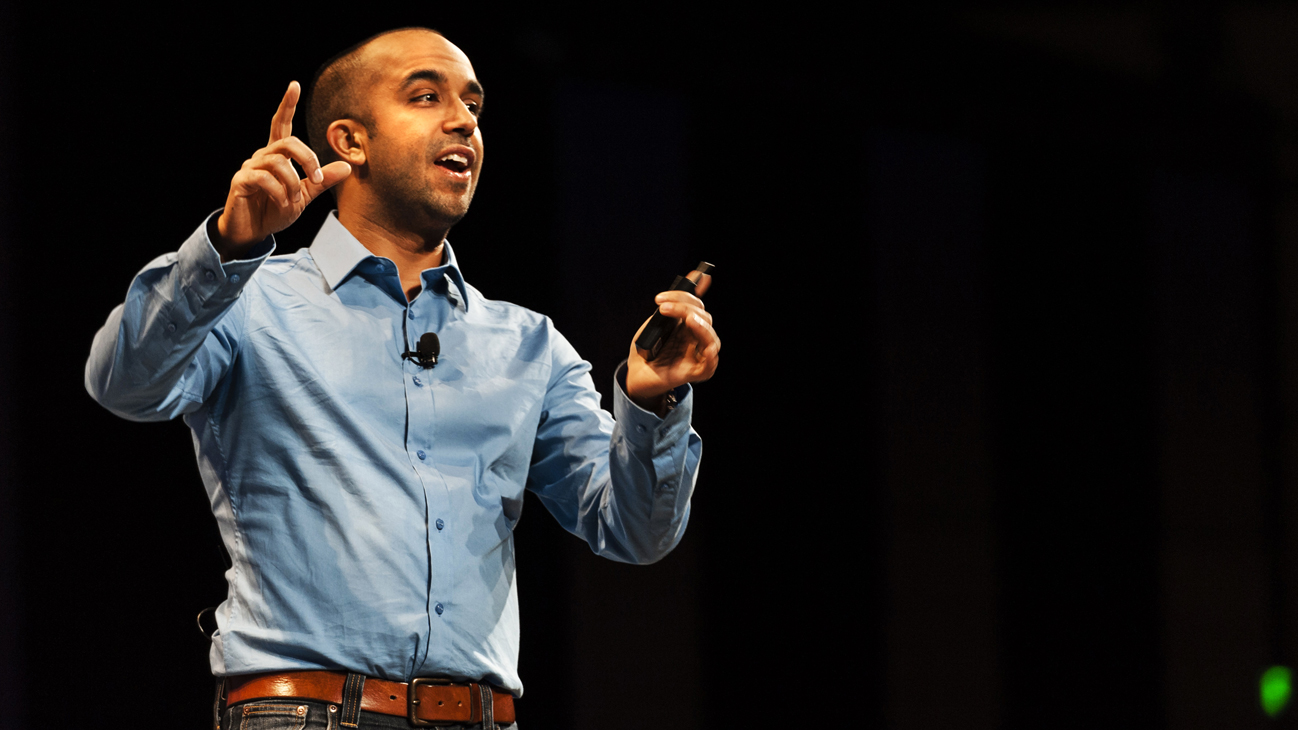In his latest Toronto Star column, Happiness Expert and one of the most popular TED speakers ever to grace the stage Neil Pasricha asks for two short minutes in which he says we can let go of regrets and express gratitude–improving our overall happiness.
Pasricha’s infectious talks draw on the latest happiness research and blend with his authentic exuberance to show how we can live happier lives at home and in the workplace and you can even see that jumping off the page in the except from the column below:
I found a fascinating study that helps confirm this thinking called “Don’t look back in anger!” published in Science magazine back in 2012. No, it’s not written by Noel Gallagher. The study is by Stefanie Brassen, Matthias Gamer, Jan Peters, Sebastian Gluth and Christian Buchel.
These researchers show that minimizing regrets as we age creates greater contentment and happiness. When we accept ourselves it’s no surprise we are happier. The research shows holding regrets causes us to take more aggressive and risky behaviours in the future. The most healthy and happy people notice issues they’re holding onto in their lives . . . and then choose to let them go.
I know I lived with stress and anxieties for a long time.
So more recently I’ve taken what I’ve learned about the power of confession together with positive psychology research and developed a simple two-minute exercise for myself that helps me win the day every day.
I call it “Two Minute Mornings” and it helps me prime my brain for positivity all day. To do it I write out three quick sentences for myself:
I will let go of . . .
This is what we’ve been talking about. A confession. An anxiety. Here’s where I’ll write about my balding head, flabby stomach, the jealousy I feel about something or the disappointment in my stomach when I get a book proposal rejected.
I am grateful for . . .
Professors Robert Emmons and Michael McCullough showed that if you write down five gratitudes a week you’re measurably happier and even physically healthier over a 10-week period. Since I know the more specific the gratitudes the better I’ll avoid writing down things like “friends, family, job” and go for things like “Finding a new coffee shop with Wi-Fi and plugs,” “When an old friend from high school called to say hi” or “Ordering less at a restaurant when I know I’m getting at least half a kid’s meal.”
I will focus on . . .
The last thing I’ll write each morning is a little list of precisely three things I’ll do each day. That’s it! Just three. It forces me to chisel a short list of things I will do from the giant block of things I could do. Why? Because it helps prevent revisiting your could-do list all day. See, that causes decision fatigue as decision-making energy uses a complex part of the brain and we’re all wasting energy anytime we’re unfocused. As Roy Baumeister and John Tierney say in their book Willpower: Rediscovering the Greatest Human Strength, “Decision fatigue helps explain why ordinarily sensible people get angry at colleagues and families, splurge on clothes, buy junk food at the supermarket and can’t resist the dealer’s offer to rust-proof their new car. No matter how rational and high-minded you try to be, you can’t make decision after decision without paying a biological price. It’s different from ordinary physical fatigue — you’re not consciously aware of being tired — but you’re low on mental energy.”
I use the daily focus to write down three small goals I want to achieve that day like “Write a chapter for my new book, call Erin about tour, and play tennis with Alec.” It feels great crossing them off and satisfying to close the day on a high.
Read the full column here.

